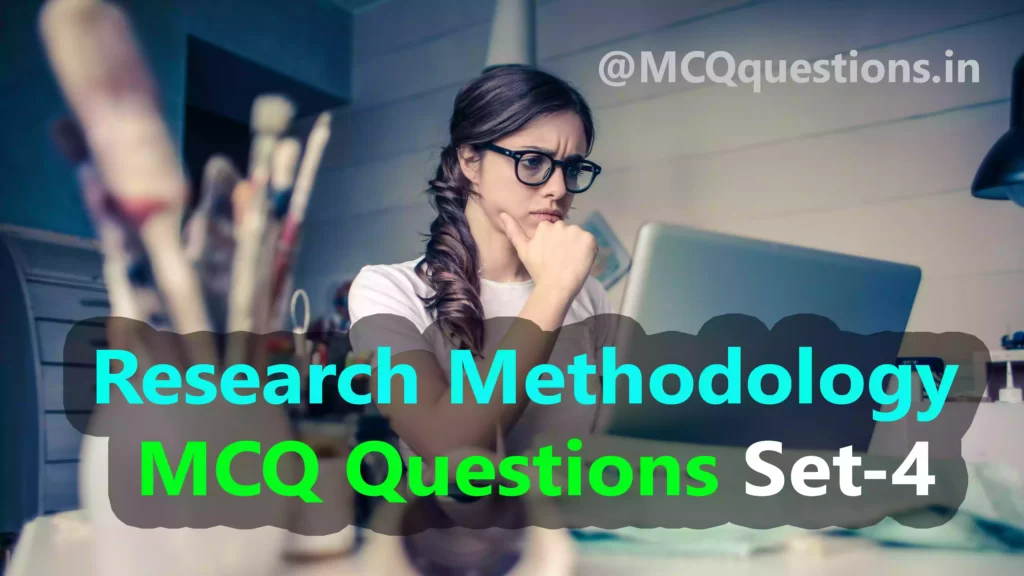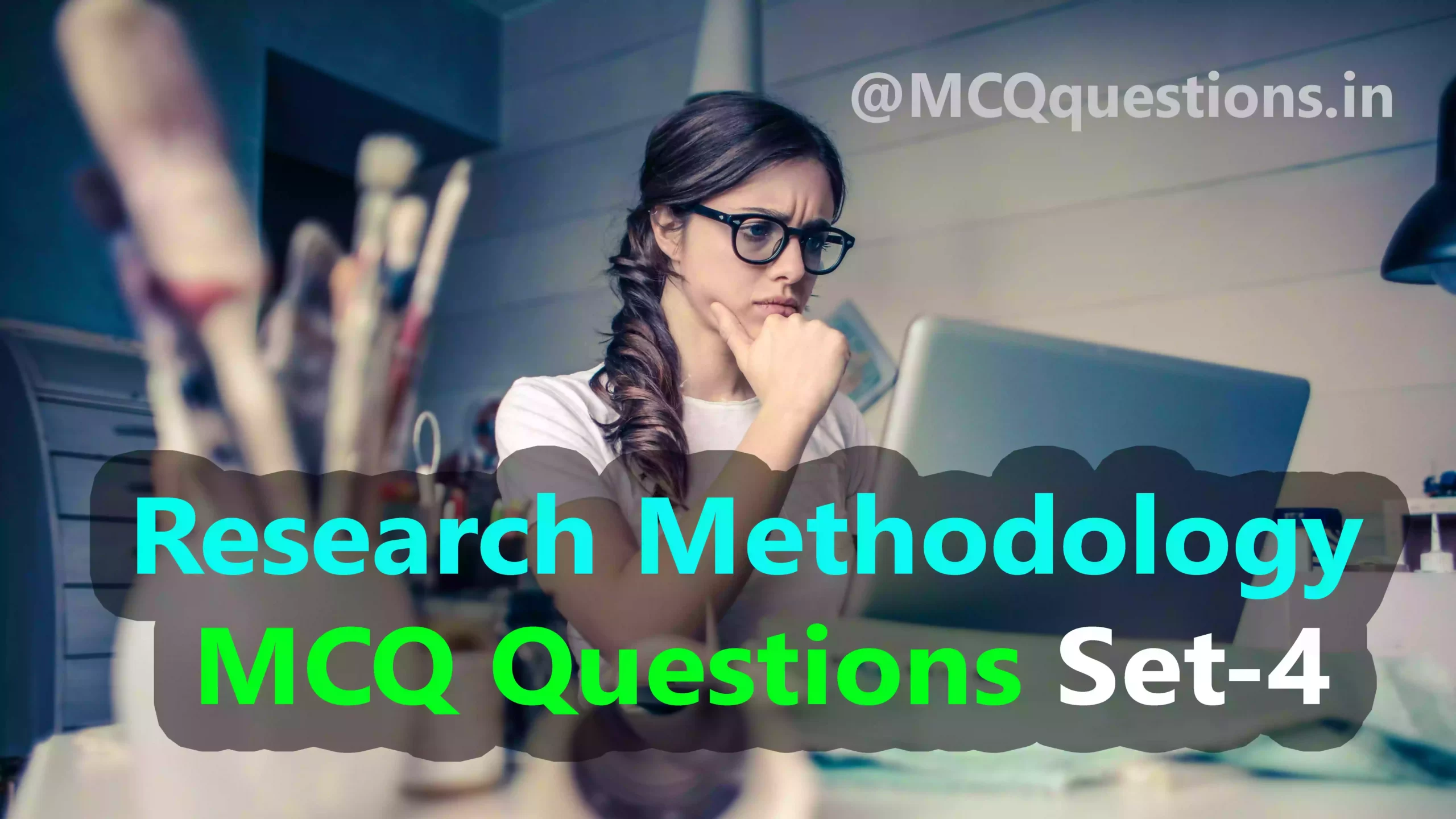Research Methodology MCQ

Research Methodology MCQ Questions
Also you can read
1. The evolution of operation research could be associated within well-known development of
(A) Industrial organization
(B) Institutional organization
(C) Small scale organization
(D) Traditional organization
Answer (A) Industrial organization
2. The problem and techniques can be classified broadly into
(A) Inventory control
(B) Game theory
(C) Network analysis
(D)All of these
Answer (D) All of these
3. Which of the following is/are essential requirement/s to carry out a successful research
Process?
(A) Planning
(B) Guidance
(C) Experts
(D) All of these
Answer (D) All of these
4. Which of the following has a great impact mind of the researcher?
(A) References
(B) Finance
(C) Journals
(D) Library
Answer (A) References
5. Which of the following is the first step in a research process?
(A) Selecting a topic
(B) Formulating research problem
(C) Development of a hypothesis
(D) None of the above
Answer (B) Formulating research problem
6. Hypothesis relate generally or specifically
(A) Variables to variables
(B) Constant to variables
(C) Variables to constant
(D) Constant to constant.
Answer (A) Variables to variables
7. The source of hypotheses may be based
(A) Chance-intuition
(B) Expectation
(C) Both ‘A’ and ‘B’
(D) None of these
Answer (C) Both 'A' and 'B'
8. Research design is
(A) A plan
(B) A structure
(C) An strategy
(D) All of these
Answer (D) All of these
9. Which of the following is/are purposes of the research design?
(A) Providing answers of research questions
(B) Controling the variance
(C) Both ‘A’ and ‘B’
(D) None of the above
Answer (C) Both 'A' and 'B'
10. In which of the following selection depends on chance?
(A) Probability selection
(B) Purposive method
(C) Mixed sample
(D) None of the above
Answer (A) Probability selection
11. In the purposive method of sampling design, items are selected according to
(A) Law of probability
(B) Personal judgement
(C) Law of certainty
(D) None of the above
Answer B) Personal judgement
12. If samples are taken concerning all probable characteristics then there are
(A) No chances of any error
(B) More chances of error
(C) Lesser chances of more errors
(D) None of the above
Answer (C) Lesser chances of more errors
13. Primary data for the research process can be collected through
(A) Experiment
(B) Survey
(C) Both ‘A’ and ‘B’
(D) None of these
Answer (C) Both 'A' and 'B'
14. A belief becomes a scientific truth when it is
(A) Established experimentally
(B) Arrived logically
(C) Both ‘A’ and ‘B’
(D) None of the above
Answer (C) Both 'A' and 'B'
15. In order to study the relationship of family size to income a researcher classifies his population into different income slabs and then takes a random sample from each slab. Which technique of sampling does he adopt?
(A) Cluster sampling
(B) Random sampling
(C) Stratified random sampling
(D) Systematic sampling
Answer (C) Stratified random sampling
16. A researcher uses statistical techniques in his problem to confirm
(A) Whether worthwhile inferences could be drawn
(B) Whether the data could be quantified
(C) Whether appropriate statistical techniques are available
(D) Whether analysis of data would be possible
Answer (B) Whether the data could be quantified
17. Which of the following qualities do you consider essential for a research scientist?
(A) Keenness of observation
(B) Persistence
(C) Logical reasoning
(D) All of the above
Answer (D) All of the above
18. With which of the following propositions about research you do not agree?
(A) Research improves the quality of teaching
(B) Research contributes to social progress of the country
(C) Research is a joy in itself
(D) Research leads to finding solution
Answer (C) Research is a joy in itself
19. Which of the following is/are essential for communicating a research work?
(A) Command over language
(B) Conclusions drawn
(C) Procedure followed
(D) All of the above
Answer (D) All of the above
20. A researcher should consider himself as
(A) Open minded and radical
(B) A status-quo maintainer
(C) Fairly knowledgeable
(D) Entirely dependent on the teacher
Answer (A) Open minded and radical
